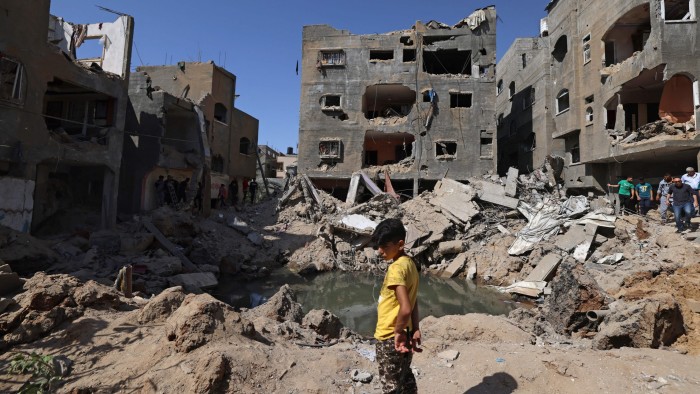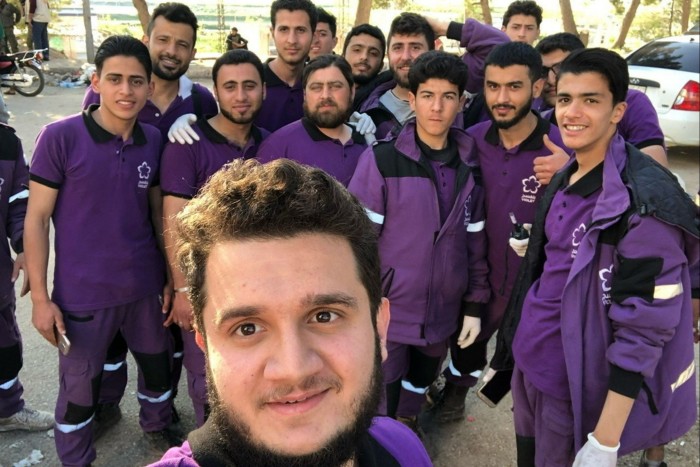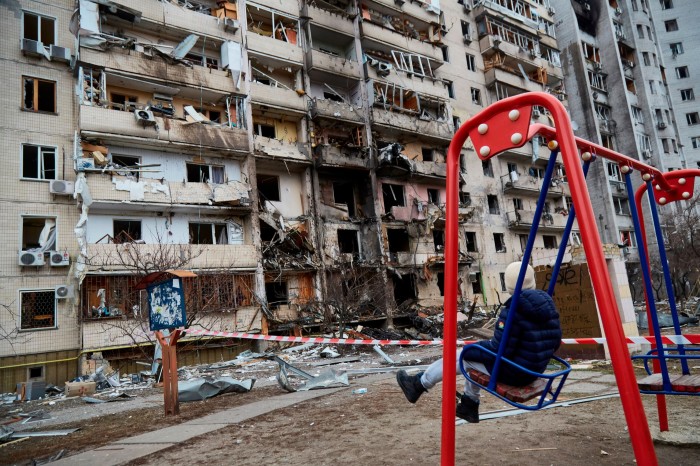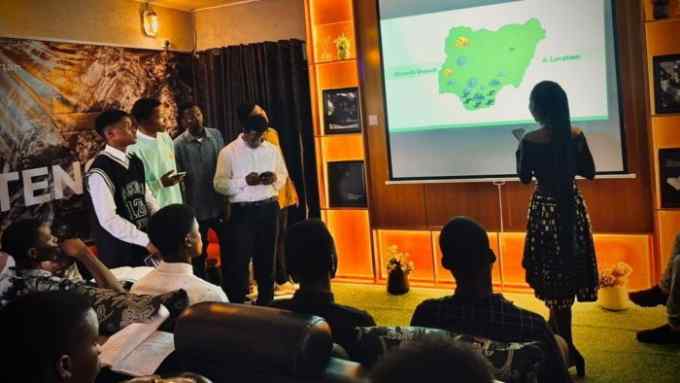Charities give youths from conflict zones the chance of an education

Roula Khalaf, Editor of the FT, selects her favourite stories in this weekly newsletter.
“Just because young people live in conflict and refugee camps, it doesn’t mean they don’t have dreams of thriving communities.”
This was the reason that youth activist Fouad Sayed Issa gave for founding the refugee-led Violet Organization for Relief and Development in the north-west of Syria in 2011, when he was just 16. And what began as a grassroots effort by young people against the backdrop of armed conflict has evolved into a humanitarian organisation that has since raised hundreds of thousands of dollars and recruited 2,000 volunteers and aid workers.
Such fundraising initiatives are sorely needed — and especially for education. A quarter of the world’s population lives in a country affected by conflict, which has an inevitable impact on their learning. More than 127mn displaced children from these countries are not in school, while many others receive only a poor quality education, according to the International Rescue Committee.
Islam Al-Rijob, who was raised in Al-Kum, a remote village in the Palestinian governorate of Hebron, in the West Bank, is an example of someone helped by such a project. She was able to take part in a child sponsorship programme run by ActionAid, an international NGO.
“The child sponsorship programme, including digital intervention, helped me in building my self-confidence,” says Al-Rijob, now 21. “It encouraged me to play a greater role in society by participating in voluntary activities, serving the local community.”
Such activities, she says, provide a much-needed sense of relief and a safe space for girls and young women living in marginalised and remote areas such as Hebron, where there is limited access to essential services.
“Against the backdrop of conflict, war, checkpoints and settler violence, we work to empower young people [by providing them] with access to jobs and education,” says Riham Jafari, Advocacy and Communications Co-ordinator at ActionAid Palestine. “[It’s] a key route to employment, especially for girls and young women in remote areas.”

Young people who have been displaced rarely live near schools, and those housed in refugee camps have even less access to education. According to think-tank Chatham House, there were more than 5,000 violent attacks on educational facilities in conflict zones between 2020 and 2021.
ActionAid has been supporting young people’s right to education in cities affected by conflict for ten years now — often by providing them with digital devices. But it remains a difficult task with little state backing.
“Young people do not thrive in conflict zones,” observes Professor Alison Phipps, Unesco Chair for Refugee Integration through Languages and the Arts at Glasgow University. However, policymakers are “deaf to our cries” about the harm caused by violence, she says. Nor are they interested in “our substantial evidence”.
In the wake of “swingeing cuts” to the UK’s Overseas Development Assistance budget, Phipps has found that “one thing is critical: working with people in ways which accord them dignity and agency and control over their lives, within the confines of what is left; working through arts and culture is one way of doing this”.
Violet’s Issa has seen what is possible, first-hand. “As a person who has lived through conflict, I know that young people dream of a better future, but living in areas of conflict makes it tough to see beyond the challenges,” he explains.
“They [young people] have a feeling of ambition for a future, that’s why we focus on creating safe spaces, like youth clubs, where they can share ideas, grow, and feel supported. It is the best way to provide humanitarian support. We have been able to mobilise young people who have become first responders in their communities.”
ActionAid has been working with Violet since the start of 2021 on a youth-led humanitarian and resilience response programme, reaching more than 20,000 young people. Its projects help to increase displaced people’s ability to cope with shocks, through mental health counselling services, and build their leadership skills in the face of adversity.
Phipps believes that, in refugee camps and similar settings worldwide, those who have fled persecution, poverty and war can keep alive the hope of a better life. By embracing other people’s languages, but preserving cultural traditions and promoting mutual support among refugees, they can take control of their own narratives, she argues.
Back in Hebron, Rijob explains that engaging with ActionAid activities “allowed me to break the barrier of silence and shame”. Those activities are the reason why many girls in her area continue their education and participate in public activities, she says.

Uprooted children and young people — whether in protracted displacement, refugee camps, urban slums, or bustling mega cities — face limited access to essential services, but they “should not be viewed as passive bystanders”, states Unicef’s policy on ‘Migrant and displaced children’. Instead, they can be key agents for change.
ActionAid’s Jafari agrees: “Whether a thriving city is built or not, even in conflict zones, young people have aspirations and hopes to build sustainable communities for their own thriving future — and this should be at the heart of the health and wellbeing of a traumatised generation.”

Comments